Transversal Management courses
In order to successfully be an entrepreneur or join an organization, Master in Management students need to develop their own skills, achieve the principles and tools of project, quality, intercommunication, etc. These skills, tools and principles will help optimizing the resources in this transversal management mode. Therefore, the CNAM-IIM has developed four transversal management modules that are indispensable for all Management students, whatever expertise they will follow. They include:
IIM US172Y : Project Management Core
Description
A project is an investment. Any investment has to be decided. Making a project investment decision has to be prepared adequately. One factor is assurance that project will be controlled adequately to its conclusion. This course provides future managers key practical knowledge to help them to plan projects and to control project execution.
Objectives
- To identify critical success factors in projects;
- To know how to develop a project plan;
- To know how to control project execution.
Selected topics
To contribute to project plan development and execution:
- To plan and control execution of simple projects;
- Project identification - Project flowchart and organization;
- Broken line - Milestone Trend Chart;
- Performance metrics - Earned Value Management;
- Project control areas - Project management lag.
36 H - 4 ECTS
IIM US1730 : Management & Information Systems
Description
The course focuses on the identification of fundamental criteria to manage and pilot the firm and the elaboration of an appropriate information system to support them. It will address the business activity development with the use of ICT to support it.
Objectives
- Provide an overview of the different kinds of information systems in an enterprise;
- Provide an understanding on the business opportunities created by new information and communication technologies and address the management issues;
- Give some basic methods for an efficient IS planning & development process and guidelines to optimize the returns on investment;
- Give confidence in addressing the management challenges of selecting and implementing computer based business systems.
Selected topics
- Study of the exploitation cycle and human resources management though the use of a corporate information system;
- Technical architecture of a corporate information system;
- Data structure, modeling, simulation;
- Internet, e-business, e-commerce;
- Corporate portal.
36 H - 4 ECTS
IIM US1735 : Business Ethics
Description
The course explores the ethical issues that arise from the operation of business in a globalized and inter-connected economy. By applying the tools of theory, ethical analysis, and personal reflection to a variety of real-life case studies, students will cover several subject areas, including ethics and the individual, theories of ethics, ethics of business and management, employees and human resource issues, consumer issues, and the ethics of advertising, marketing, and public relations.
Objectives
Upon successful completion oh this course, students should be able to:
- Understand and apply various philosophical, conceptual, and pragmatic approaches to ethical decision making in a variety of business and organizational contexts;
- Understand the main psychological, social, and personal components and explanations of unethical behaviour;
- Understand the concept and diverse applications of Corporate Social Responsibility, Sustainability, and Corporate Philanthropy;
- Understand the general ethical issues faced by businesses, government and NGOs in various industries and fields of professional practice;
- Effectively evaluate and navigate ethical dilemmas in a thoughtful, methodical, and meaningful way.
Selected topics
Topics covered include: contract formation, contractual terms and formalities, contractual arrangements for e-business, product liability, consumer protection, intellectual and industrial property law, labour law, privacy law, ADR (alternative dispute resolution policy) and law relating to international trade.18 H - 2 ECTS












